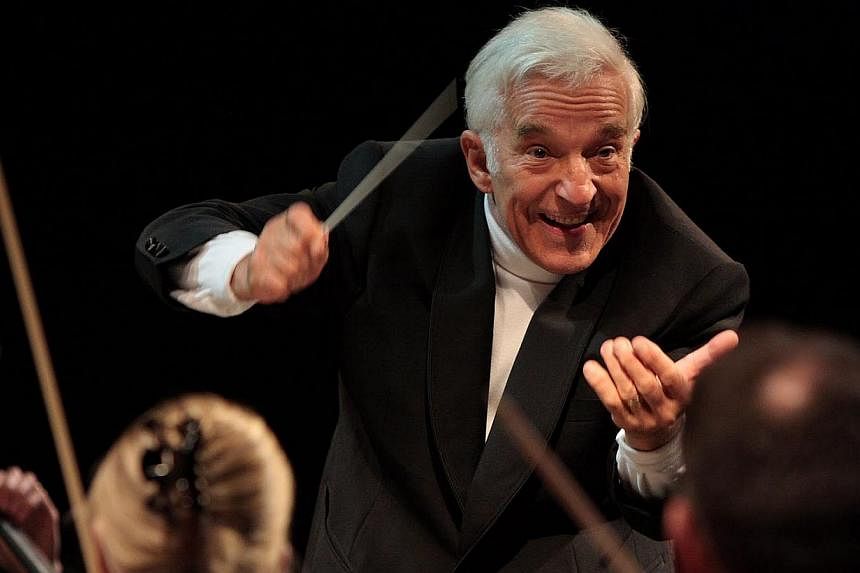by Mervin Beng
Russian pianist/conductor Vladimir Ashkenazy's recordings of Sibelius' orchestral repertoire with the Philharmonia Orchestra have been a benchmark for almost three decades, so his programme with three works by the composer in the first half at Wednesday's concert at Esplanade Concert Hall was something to savour, even if it was in part prompted by the postponement of the 4th Hong Kong International Piano Competition, and the consequent cancellation of a concerto with the Singapore Symphony Orchestra by its would-be winner.
Many performances of the Sibelius' ubiquitous tone poem Finlandia take the grand, euphonic approach, but there was real bite in the opening chords by the SSO. This was not to be just another lush, polished reading, but with ever incisive direction from Ashkenazy, the spirited opening section provided great contrast to the dignified playing of the stirring national hymn, Finland Awakes.
The cor anglais, or English horn, features prominently in the Swan Of Tuonela, and the ever consistent Elaine Yeo lent a particularly poignant timbre to her extended solos. Ashkenazy's brilliance was evident in the way he brought a completely different sound from the orchestra - cool and atmospheric, perfectly evoking an icy Finnish lake, and Ng Pei-Sian's short cello solos were exceptionally soulful.
The trio of Sibelius' works ended with the Karelia Suite, where Ashkenazy was again able to coax a different sound - this time more regimented, to match the music's folk and nationalistic roots.
The second half was devoted to Dvorak's Symphony No. 8, his most popular after hi Symphony No. 9 ("From the New World"). Dvorak's music never lacks memorable melodies and themes, and this symphony has them in abundance - from the sweeping opening theme played by cellos and horns through the delightful dance in the third movement, to the rousing trumpet fanfare that follows immediately in the final movement.
Too often with this work, the temptation is for each soloist or section to try to outdo the other, but this is precisely what Ashkenazy in his genius avoided. Instead, he glued the themes, sections and movements into a much greater whole, one that truly showed off Dvorak's huge orchestration skills.
The solos by Evgueni Brokmiller (flute), Rachel Walker (oboe) and Igor Yuzefovich (concertmaster) were excellent without overtly hogging the limelight, and clarinets, horns and timpani were in great form.
There are occasions when the SSO play brilliantly, but leave a lingering sense of detachment in their performance. Ashkenazy's ability to bring a genuine sense of warmth to the playing, while totally avoiding over-indulgence or lack of precision, was magical.
Perhaps the greatest testament to this was how the musicians waved fondly to the maestro as he took his leave after the many curtain calls - such was the love and admiration for this great conductor.

